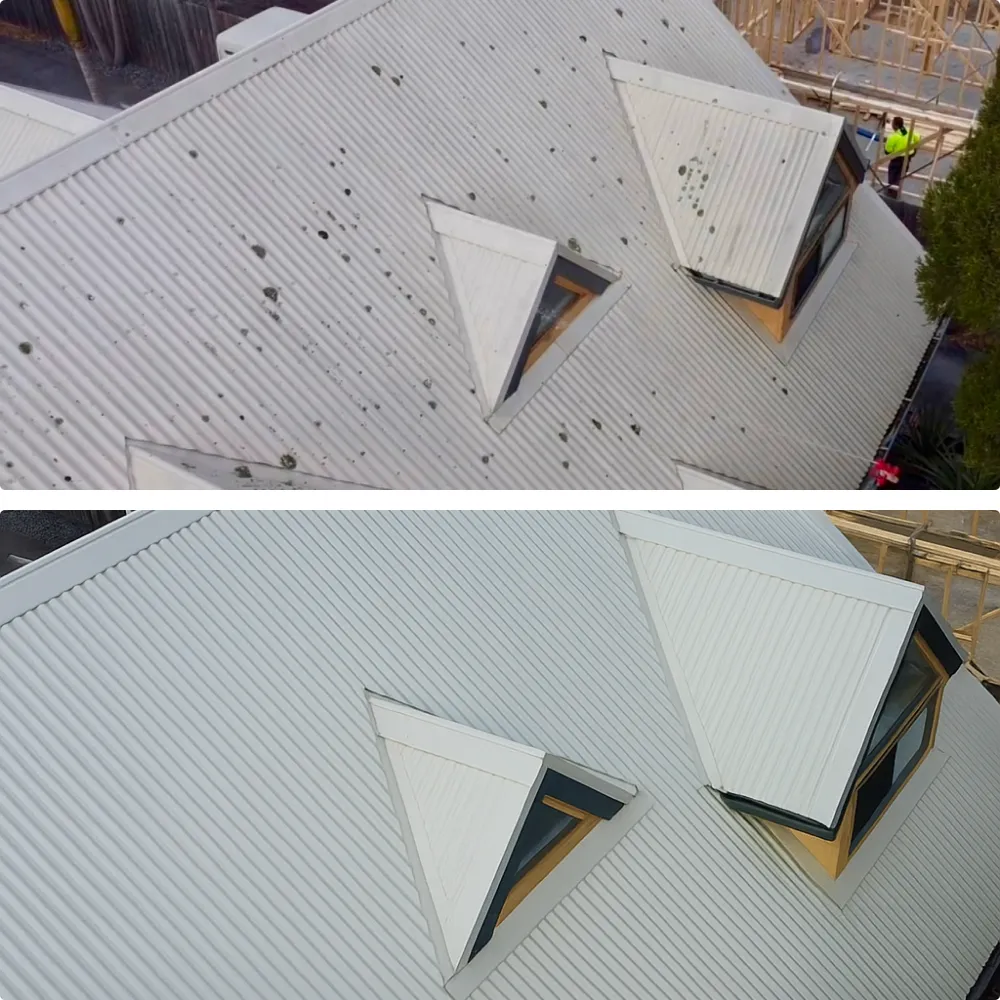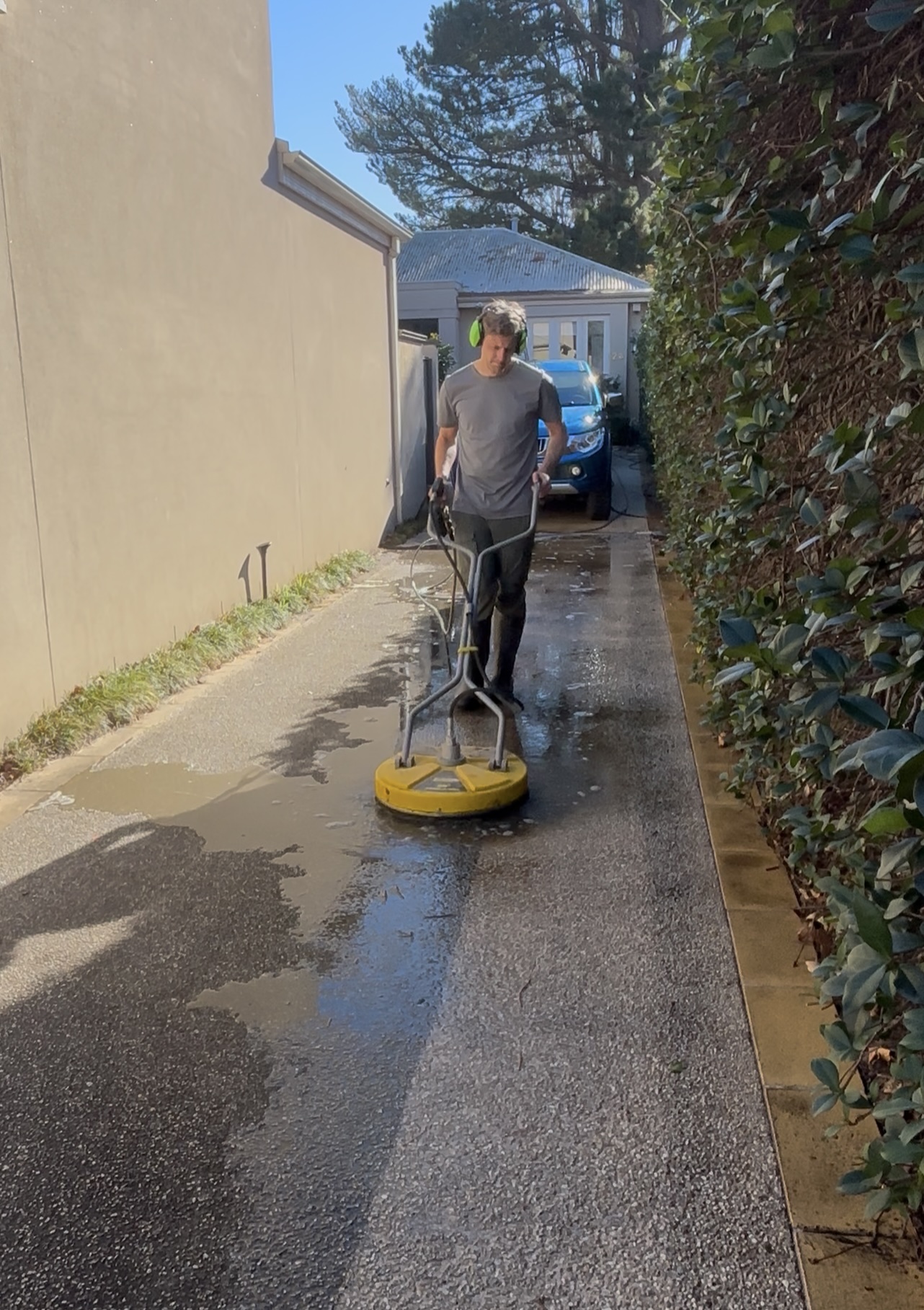
Chances are, you’ve heard of pressure cleaning. Most people picture a big machine blasting water at full force to clean a driveway or scrub a dirty path. But there’s another method that’s just as important when it comes to caring for your property: soft washing.
Not many homeowners know the difference between the two, but choosing the right method can make all the difference. Get it wrong, and you could end up with damaged surfaces, unexpected repair bills, or a finish that doesn’t last.
At Ultra Exterior Cleaning, we’ve helped homeowners and businesses across Melbourne — from the leafy streets of Camberwell and Kew to the beachside homes of Brighton and St Kilda — keep their properties looking their best. Here’s what you need to know about pressure cleaning and soft washing, and when each method is the right choice.
Think of pressure cleaning (or pressure washing) as using a super-powered garden hose. The machine pumps water out at a very high pressure, strong enough to blast away dirt, oil, moss, and stains in seconds.
It’s a fast and effective way to restore hard surfaces. Driveways, paved courtyards, and brick walls are perfect candidates, as the powerful water stream strips away built-up grime and makes old surfaces look almost new again.
But there are some risks. The high pressure can be too harsh for softer surfaces such as timber decks or painted walls, where it may cause splintering, chipping, or peeling. And while pressure cleaning removes surface mould, it doesn’t kill the spores beneath — meaning the problem often comes back.
In short: pressure cleaning is like using muscle power. It’s the right choice for tough, durable surfaces, but it can do more harm than good on delicate ones.
Soft washing takes a different approach. Instead of relying on high pressure, it uses low pressure combined with specialised cleaning solutions. These solutions don’t just wash away dirt; they kill mould, algae, and lichen at the root, delivering a deeper and longer-lasting clean.
This makes soft washing ideal for more delicate areas of your property, such as roofs, painted exteriors, cladding, and weatherboard houses — especially those found in Melbourne’s older suburbs. Because it’s gentle, soft washing won’t damage paint, crack tiles, or wear down surfaces.
The trade-off is that soft washing usually takes more time than pressure cleaning, and it requires professional equipment and cleaning solutions. DIY attempts often fall short, leaving mould or algae to regrow.
Think of soft washing as using brain power — a smarter, gentler method that cleans deeper and protects your property for longer.
The difference between pressure cleaning and soft washing comes down to technique.
One is about strength; the other is about strategy. The right choice depends on what you’re cleaning.
Soft washing is best when you want a safe, long-lasting clean without risking damage. Here are a few common situations in Melbourne:
Pressure cleaning is the go-to option for hard surfaces and quick results. Some common uses include:
At Ultra Exterior Cleaning, we pride ourselves on helping Melbourne homes and businesses look their best. Whether you’re in a leafy suburb like Donvale, a beachside area like Brighton, or the bustling inner city, we know which cleaning method will work best for your property.
Our services cover everything from driveways and car parks to roofs, gutters, shopfronts, and full house washes. Whatever the job, we use the right tool for the right surface — delivering a spotless finish without compromising the integrity of your property.
The choice between pressure cleaning and soft washing comes down to one simple rule: use the right method for the right job.
If you’re not sure which is best for your property, Ultra Exterior Cleaning can help. With the right knowledge, equipment, and local experience, we’ll make sure your home or business shines — and stays protected — for years to come.

We experts at soft washing and pressure cleaning contact us for a free quote
Get a free quote